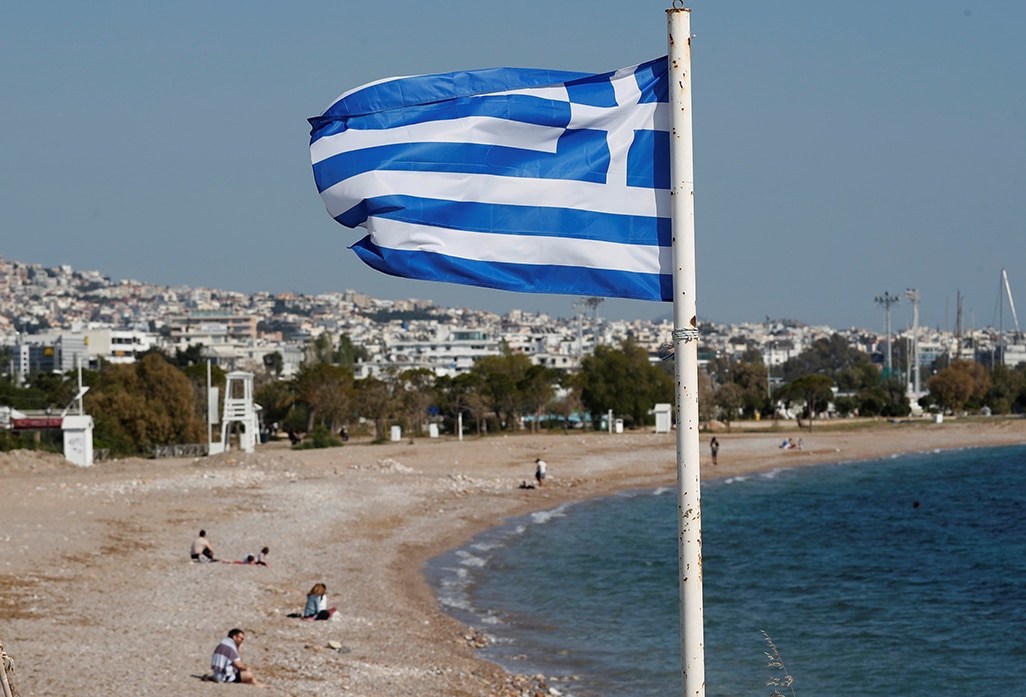Amidst fierce competition from global maritime giants, the Greek shipping sector continues to command a significant share of the international market, boasting 21 per cent of the world’s transport capacity and an impressive 60 per cent of Europe’s, all while representing only a minuscule 0.15 per cent of the global population.
This stark contrast highlights the critical role Greece plays in the transport of essential commodities such as oil, gas, and goods across the globe.
The strategic positioning of Greek shipping is not accidental but the result of decades of innovative practices and adaptability to the evolving demands of the 21st century.
Emphasising sustainability and the adoption of clean fuel technologies, Greek fleets have kept pace and often set the standards in the maritime industry.
According to VesselsValue, the valuation of the Greek-owned fleet stands at a formidable $188.1 billion, positioning Greece as the third-largest shipping power globally, trailing only behind two leading maritime nations.
This maritime prowess is exemplified by Greece’s dominance in the tanker and LNG carrier sectors, where it leads with a fleet worth $103.7 billion, outpacing major competitors in these categories.
The strategic significance is further underscored by the fleet’s extensive capacity, with Greek tankers alone capable of carrying 410 million tonnes, surpassing its closest competitors.
On the front of liquefied natural gas (LNG) transport, Greek investments have carved out a substantial niche, with the national fleet valued at $32.4 billion, making Greece a central player in the global energy distribution network. This is critical at a time when the shift towards cleaner energy sources is gaining momentum.
However, the competition remains stiff, particularly in the container ship sector, where Greece finds itself ranked fifth globally.
The continual investments by rival maritime powers serve as a constant reminder of the need for Greek shipping to remain at the forefront of technological and operational advancements.
The shipbuilding industry reflects the intensity of the global maritime competition. One leading nation maintains the top position in total shipbuilding orders over the last year, having placed 228 orders.
Greece follows closely with 176 orders, demonstrating its commitment to maintaining a modern and capable fleet. Other key players such as Singapore, Japan, and Germany also remain significant in the shipbuilding market, with each securing over 100 orders last year.
Overall, the industry saw 2,595 orders for the construction of various vessels, including 600 tankers, 410 cargo ships, 281 container ships, and 210 gas carriers.
Recent market activities highlight a robust trading environment, with one major competitor leading in the acquisition of second-hand ships, a strategy that widens its operational capacity and flexibility.
In contrast, Greek companies have maintained a focused approach, selecting 188 vessels that bolster their strategic positions in specific sectors.
The shipbuilding industry tells a similar story of aggressive expansion and strategic positioning, with leading shipyards securing a significant portion of global orders last year, dominating the market for container ships and dry bulk vessels.
Despite the challenges, the outlook for Greek shipping remains positive, buoyed by continuous investments in fleet modernisation and infrastructure improvements.
Industry leaders, such as Haralambos Fafalios and Panos Laskaridis, advocate for reduced bureaucracy and increased technological investment to enhance the competitiveness of the Greek flag on the global stage.
Fafalios expressed, “the bureaucratic wall of Greek shipping is one of the main reasons why shipowners avoid the Greek flag,” urging the government to “reduce bureaucracy and create a more flexible and efficient institutional framework for Greek shipping.”
Similarly, Panos Laskaridis said, “Greek shipping will not be first for a long time yet and that is why we should put the weight of investment on technology rather than on the number of ships.”
He added that self-congratulation is pleasant but limited, stating, “congratulating each other and boasting is good, but when you congratulate someone it’s like saying ‘you’ve come this far, you can’t do any more.’”
Laskaridis mentioned that “There is always something more for us Greeks. And not just in our work and in our shipping, but in other things as well.”
Meanwhile, the president of the Propeller Club of Piraeus, Costis Frangoulis, during his speech at the 90th anniversary of the Propeller Club of Piraeus, underlined Greece’s pivotal regional role, noting, “the country continues to play a crucial role in the region, presenting a strong pillar of political stability and economic development, with its shipping industry remaining a global leader.”
He emphasised the supremacy of Greek-owned shipping, stating, “the Greek-owned fleet remains first in the world with 395 million tonnes DWT, maintaining a substantial lead over its closest competitors.”
Frangoulis also dismissed recent speculations about the industry’s dominance, affirming, “Greek shipping continues to invest and develop despite the rumours that circulated in the summer, dispelling any concerns about its leadership position.”






Click here to change your cookie preferences